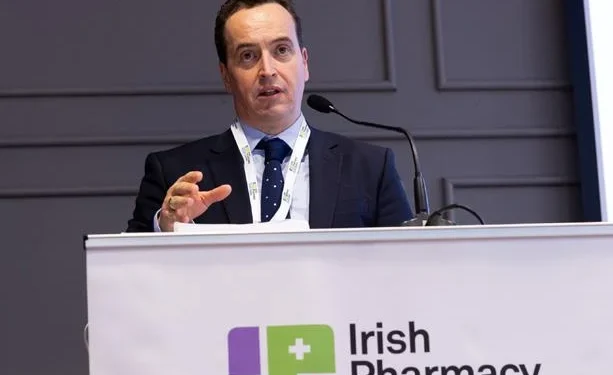A new White Paper, published by The Irish Pharmacy Union (IPU), has outlined a policy framework to transform pharmacy care in this country by turning pharmacies into key healthcare hubs, improving access to community care. The IPU says, that with the right strategy and resources pharmacies can play a greater role in improving access to community healthcare.
Tom Murray, President, Irish Pharmacy Union
Speaking on World Pharmacist Day, Tom Murray, President of the IPU, said, “With 78 million visits per year pharmacies are the most accessed part of our healthcare system. However, the absence of a national pharmaceutical care policy limits their potential.”
The IPU White Paper – ‘Key Enablers for a Sustainable Pharmacy focusses on the areas of expanding pharmacy services, refocussing on patients and most importantly keeping pharmacies open by addressing under resourcing.
Expanding Pharmacy Services
A central recommendation of the Expert Taskforce on the Future of Pharmacy Services, which we would hope to see implemented as soon as possible, is allowing pharmacists to prescribe medications for common conditions. With appropriate resourcing and an implementation plan this service will allow pharmacists to prescribe medication directly for patients and facilitate quicker access to care.
The IPU is also calling for:
• An expansion of the range of vaccines that can be administered in a pharmacy setting.
• The introduction of chronic disease management services to complement existing clinical care pathways.
• Oral Contraception to be available through consultation with a pharmacist.
“These are not new schemes or ideas; they are tried and tested and functioning well in other countries,”
Mr Murray said.
Keeping Pharmacies Open
“To enable this vision of pharmacy care will require the appropriate level of resourcing,” according to Mr Murray. “Many pharmacies, particularly those in rural areas, are facing financial difficulties due to outdated payment structures and rising costs.”
“The average pharmacy receives almost two-thirds of its income from the State for providing care through the community drug schemes. The fees provided for this care have been frozen since 2009, and pharmacies like every other business and individual, have experienced soaring operational costs.
The White Paper also outlines proposed reforms to address the shortages of pharmacy staff highlighting that a comprehensive workforce planning strategy is required to address skill gaps, improve access to pharmacy education, and ensure adequate staffing levels are maintained.
Reducing Paperwork to Focus on Patients
Pharmacists spend up to 82% of their time on administrative task managing community drug schemes, leaving less time for patient care.
Mr Murray explained the impact of this red tape. “There is an overwhelming administrative workload that leaves little time for patient care. Worryingly, 27% of pharmacists are considering leaving the profession due to the administrative burdens associated with the complexity of managing existing drug schemes.”
“We are calling for the implementation of a modern ICT system and streamlined processes to automate routine tasks allowing pharmacists to dedicate more time to direct patient care.”
Chief Pharmaceutical Officer
Mr Murray called for the recruitment of a Chief Pharmaceutical Officer (CPO) to lead and represent the sector at a national level to be accelerated.
“The appointment of a CPO, as exists in many other countries and as recommended in the recent Expert Taskforce report, would provide strategic leadership, and ensure representation and involvement of the pharmacy profession at the highest level nationally.
In conclusion Mr Murray said, “There is so much exciting potential in pharmacy care. It is possible to revolutionise our pharmacy care services within a few short years, but it will require vision and, above all, the proper resourcing of our pharmacies to make this a reality.”
Read our latest News Here
Read IPN October Here









